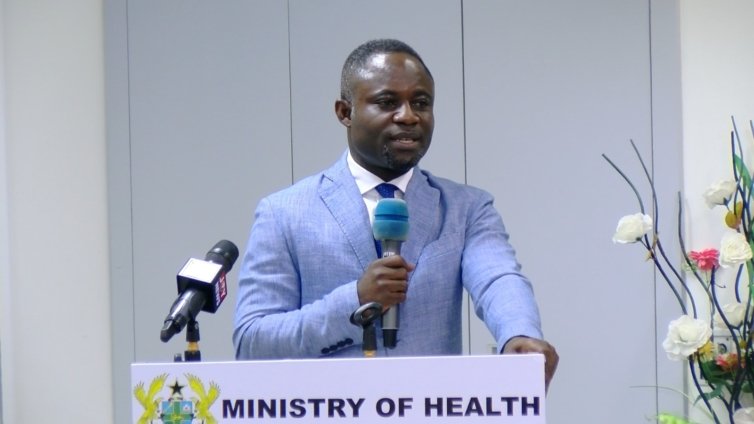The Minister for Health, Hon. Kwabena Mintah Akandoh, has assured the general public of the ministry and its related agencies’ commitment to end the issue of NHIS co-payment in public health facilities.
Speaking at the hearing of the Parliamentary Accounts Committee (PAC), Hon. Akandoh highlighted some of the issues that are being addressed to ensure that health facilities no longer have room to demand payment from patients who are active members of the National Health Insurance Scheme.
There have been several complaints in the public space regarding how some public health facilities charge patients who are active members of the National Health Insurance Scheme for health care treatment that is covered under the scheme.
Responding to these concerns as were laid before him by a member of the committee, Hon. Akandoh emphasized that upon assumption of office, his ministry has outlined some challenges with the National Health Insurance Scheme (NHIS) that are undermining healthcare delivery.

“When we took office as a government, some of the challenges facing National Health Insurance were, one, the delay in payment; two, the capping; three, the unrealistic payment of tariffs; and then the fourth one is what they call—they have given it a very nice name, but it’s not a nice thing—co-payment.”
Hon. Kwabena Mintah Akandoh, Minister for Health
The minister emphasized that as a responsible leader, it was only right that these challenges be dealt with right from the start, stating that the problems are being solved one after another.
He stated that the first was to solve the issue of delayed payment by ensuring timely releases of funds to health facilities, and next in line was reforming the tariff regime by introducing realistic tariffs.
He further added that funds for the scheme that was previously capped have been uncapped to ensure that it receives the required amount of money to carry out its mandate.
However, the minister noted that the issue of co-payment has not been completely dealt with, emphasizing that stakeholder engagements are ongoing to bring finality to that problem.
The minister noted that the Chief Executive Officer (CEO) of the National Health Insurance Authority (NHIA) had more information on the measures at solving the co-payment problem and therefore handed over to the CEO of NHIA.

The Chief Executive Officer of the NHIA, Dr. Victor Asare Bampoe, explained that even though there is a new tariffs regime on medicines and services, its implementation will commence after the board’s and the minister’s approval.
He added that with the timely release of funds to the various institutions, they expect that no further payments are demanded of patients for services covered by the National Health Insurance Scheme.
Dr. Bampoe further emphasized that the NHIA and the ministry are putting measures in place to ensure all health facilities comply with the arrangements under the scheme.
“We have set up a committee to deal with this, and we have a strict sanctions regime. So, once we are also doing our part, paying regularly and paying realistically, as soon as we realize that these facilities are collecting monies, which they term co-payments, which are illegal payments, we will apply those sanctions that are in our law, and it could include getting them off this scheme, which is a very important scheme. So, we want to actually also name and shame.”
Dr. Victor Asare Bampoe, Chief Executive Officer (CEO) of the National Health Insurance Authority (NHIA)

The CEO added that some facilities have been very cooperative and have stopped entertaining issues of co-payment. This prompted the Minister for Health to comment on those institutions.
“Let me use this opportunity to commend Goaso District Hospital highly for the strategies they have put in place to make sure that co-payment is not happening, and to assure the committee and the whole country that we are coming after the facilities that are tolerating co-payments in their facilities.”
Hon. Kwabena Mintah Akandoh, Minister for Health
The minister further emphasized the health ministry’s efforts at stakeholder engagements to help solve the challenges of the health sector.























